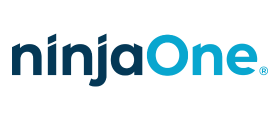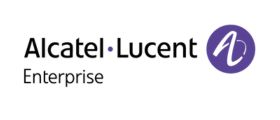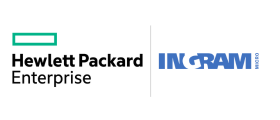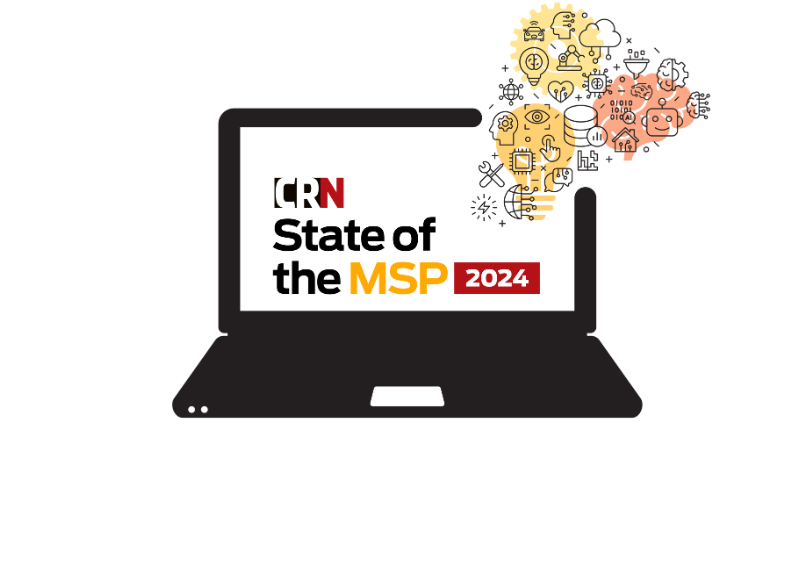


Essential Eight leads cybersecurity conversation for Aussie MSPs
Customers switch on to spooks’ warnings but mind your insurer, MSP warns
When cybercriminals took down David Norris’ managed service provider business with a supply chain attack over a long weekend in July 2021, he thought his insurer would have his back.
But Norris found himself on his own and out in the cold in a drawn-out fight just to get coverage he was owed.
“The insurance company came up to me and said, ‘We're not going to cover you’,” recalled Norris, founder and managing director of Nortec IT. Based on the insurer’s flawed understanding of Nortec’s operations, it cited a “breach of application”.

“I remember going home that Friday, totally devastated, saying to my wife: ‘We could lose everything’.”
It was a potentially extinction-level event for the plucky Castle Hill, NSW, reseller and CRN Fast50 alum that lost all its ASX-listed customers in the aftermath.
“We probably lost 25 percent of the business. That was a significant hit and we haven't fully recovered it yet.”
Norris spent over $250,000 recovering from the attack that encrypted up to 300 endpoints.
When his insurer subsequently ghosted him, Norris engaged the Insurance Ombudsman to haul them back to the table. So, after weeks of back-and-forth between the three parties, Norris’ insurer partially covered his losses but left him on the hook for the cyber part of his claim. The insurer then refused to reinsure him (Nortec has a new insurer).
“I honestly thought we would go bankrupt,” he said.
Compliance services emerge as critical (and lucrative) stream for MSPs
Norris’ lived experience had a silver lining: He and members of his staff are now Essential Eight assessors, around which Nortec offered new services.
“The way we sell a security package is – ‘Your insurance company is going to ask you, are you doing all these things? So, you're going to need it.’
“And then, if the people don't take it up immediately, when they next get their insurance renewal, they send it to us say, ‘Which of these things are we doing?’
“We say, ‘None of them. But if you take up our package, you're doing all of them.’”
Fuse Technology is another MSP deploying compliance as a service. It built a managed-services product with Level Two security compliance-as-a-service backed by service-level agreements, said Chuong Mai-Viet, managing director of the Microsoft-awarded MSP.

“If you get hacked on our watch, we will do service rebates and remediate for free. That's how much we back our ability to keep you safe and secure,” Mai-Viet said.
Such confidence arose from a shared commitment to security and compliance, including security-awareness training and transparency about where users are to protect against foreign bad actors.
“When we get that login from Alaska, we're not [asking], ‘Why is Bob in Alaska?’”
By bundling compliance services into its managed offerings, Fuse cut out complexity. It handles everything from technology deployment and management to documentation for audits and assessments.
“What we say to the customers is, ‘We will give you an outcome; not per user per month. We’ll let you sleep nights,” Mai-Viet said.
And while he baulked at identifying as a managed security provider (“anyone that needs a laptop to do a job is our ideal client”) Mai-Viet said, “security needs to be baked-in” to meet taxing compliance standards.
“For SMB clients, this provides assurance their security is as safe and secure as an enterprise environment,” Mai-Viet said.
What Nortec’s David Norris now knows that he wishes he knew before he took out cyber insurance.
David Norris’ insurer nearly sent his MSP business to the wall over a miscommunication. Among the valuable lessons that Norris learned from his lived experience with his insurer were:
Communicate clearly & consciously — A breakdown in communication between Nortec’s insurance broker and the insurer was potentially devastating.
Don’t trust your insurer — Don’t hesitate to involve the Insurance Ombudsman if your insurer ghosts you or gives you the run around.
Be wary of remote monitoring agents — Only use agents on clients that are backed up and don’t put agents on back-up devices (If the back-ups are compromised, everything is at risk).
Assemble your support & recovery team in advance — Engage and scope partners well before you need them.
Be empathetic to the human elements in your recovery plan — Employees — and MSP business owners — have varying levels of tolerance to stress.
Back up. Back up. Back up — Proper backups are critical to recovery success, speed and completeness (Nortec now reviews its back-up policy quarterly).
Packages a cost-effective option for cash-conscious SMBs
Over on the west coast in Perth, James Sutton was also successfully packaging up security for Office Solutions IT’s customers.
Packages ranged from ‘Managed Security Basics’ (Office 365 multifactor authentication, ie MFA, antivirus/spam/phishing, full-disk encryption, and user training) to higher-end packages that encompassed 24/7 monitoring (including of the Dark Web), password auditing, mobile device management, breach detection, and a raft of other services including Essential Eight.

Ultimately, it was the customer’s decision as to what they chose: “If a client wants A, B and C, they get A, B and C without having to buy D and E,” Sutton said.
Office Solutions IT provided customers with a cybersecurity ‘health check’, of issues and risks, along with options and pricing. Some clients may object due to cost or changes to their business.
“Not everyone can spend $300 a user [on cybersecurity]. I wouldn't take that on as a 20-person business; I would live with a bit more risk because I wouldn't have the money.”
Where are the compelling cybersecurity compliance opportunities for MSPs in 2024?
PCI compliance – Financial institutions are increasingly requiring merchants to be PCI compliant, providing an opportunity for MSPs to offer assessments, audits, and tools to help clients meet these requirements.
Essential Eight – Adherence to the Australian Signals Directorate's Essential Eight mitigation strategies is becoming a requirement for cyber insurance policies, allowing MSPs to conduct assessments and offer bundled security services.
Industry compliance frameworks – MSPs can provide guidance and services to help clients in regulated industries (e.g. healthcare, finance) comply with industry-specific regulations and requirements.
Managed security services – Offering services like managed SIEM, vulnerability assessments, penetration testing and security monitoring allows MSPs to ensure clients are continually compliant.
Compliance as a service – Bundling compliance into core offerings, conducting assessments, and providing templates and guidance to meet compliance requirements allows MSPs to profit from necessary compliance services.
Essential Eight gains prominence but people still a top priority
Many organisations now view the Australian Security Directorate’s (ASD) Essential Eight as foundational. For Extel Technologies managing director, Bruce Fitzgerald, it also contributed to his decision as a customer to switch MSPs.
Extel's new MSP “took us through the Essential Eight and then the multiple levels within each of those eight elements,” Fitzgerald said.
“And there's no doubt that they've identified clear gaps or areas for improvement, to help elevate us and make us stronger in each of those key elements.”
Although “putting in the relevant software that manages and protects us," was critical to Extel’s security posture, “training and education of staff right throughout” the organisation was equally important, he said.
Through a layered approach addressing people, processes and technology, Extel gained the sophisticated cyber defences demanded by its industry. And Fitzgerald valued the multifaceted security support delivered by his new MSP.
Wisdom of the crowd: What CRN State of the MSP experts believe are top security priorities for MSPs in 2024
Increasing complexity of the threat landscape — The growing sophistication of cyber threats, including nation-state actors, and the need for heightened vigilance.
Supply chain risks — Risks associated with third-party vendors and service providers, and the need to ensure robust security across the supply chain.
Security awareness training — Importance of comprehensive security training and testing for employees to reduce the risk of phishing and social engineering attacks.
Multi-factor authentication (MFA) — Adoption of MFA as a key safeguard against account compromise and unauthorised access.
Email security — Concerns around business email compromise (BEC) raised need for advanced email security solutions.
Cloud security — Migrating services to the cloud introduced new and emergent considerations.
Incident response planning — Having an effective plan to detect, contain, and recover from security incidents was a critical capability.
Compliance mandates — Keeping pace with evolving compliance requirements such as PCI-DSS, HIPAA, etc.
Security technologies — Next-gen security technologies such as XDR, SIEM, and SOAR were important tools in the MSSP’s kitbag.
Managed security services — Outsourcing security operations to a MSSP will be the norm for most small to mid-sized businesses and even many enterprises and public sector agencies unable or unwilling to source scarce and expensive talent.
Confessions from a reformed MSP: How to lead the security conversation with your customer
As a former MSP himself, Don Ribar led cybersecurity conversations with his SMB customers for years. Now, as an analyst with Gartner in the US, he counsels MSPs on how to engage their customers in similar talks.
An effective conversation-starter is to ask customers what threats they see in their own day-to-day as part of a fact-finding mission, Ribar said.
“There's got to be an educational component to what they [MSPs] put in their [cybersecurity] marketing and how they talk with their clients,” he said.
“Having those [trusted] relationships is so important because it's a lot easier to say, ‘There's this new thing that we're seeing some clients have, and I don't want you to have this problem, either’ so it doesn't come across as, ‘Oh, here's the next security thing to sell’.”
MSPs that cut through to customers tended to be those that “curate … transformational security technologies,” he said.

“So, you [the customer] don't have to worry about all these different tools; we're vetting them so, as the business owner, you focus on what you're good at.”
Perhaps the biggest barrier was overcoming an SMB owner’s innate reluctance to see themselves as a target.
“You're not too small to be a target; you're too small to make the news,” said Ribar.
MSP Champions
CRN State of MSP Champions — NinjaOne, HPE and Ingram Micro — work with MSPs to ensure IT buyers receive the most appropriate solutions and the highest service levels.
Watch their comments below about how MSPs can continue to thrive in the year ahead.




.png&h=360&w=640&c=1&s=1)





